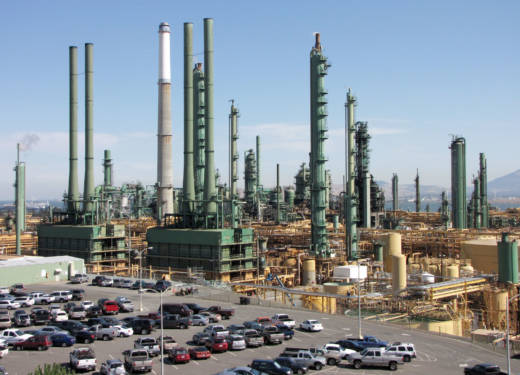"It's likely only a matter of time before we see another incident, so the communities near these dangerous refineries deserve better protection from toxic air pollution," Kretzmann said.
Lillian Riojas, a Valero spokeswoman, said the company would not comment beyond its public filing.
Ralph Borrmann, a spokesman for the BAAQMD, emphasized that the Valero fines were not settled yet.
The district tends to spend several years negotiating settlements with local refineries, bringing together a handful of violations into a package long after they are the subject of media coverage.
For instance, the district announced in March that Shell had agreed to pay $165,000 to settle violations at its Martinez refinery that took place in 2015 and 2016.
The agency's violations associated with a larger problem at Valero, the full facility power outage in May 2017 that caused a more significant pollution release, have been not been resolved yet, according to Borrmann.
Solano County's investigation into Valero's most recent incident is ongoing, according to Terry Schmidtbauer, the county's assistant director or resource management, who emphasized that the agency has yet to produce or negotiate any final violations in connection with Valero's March releases.
But Schmidtbauer said it was typical for his department to discuss tentative findings and potential penalties with companies it's investigating, talks he said would be preliminary.
